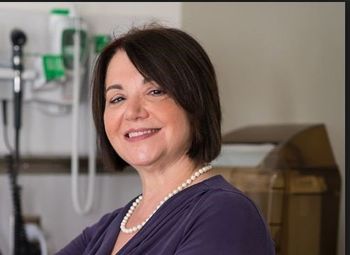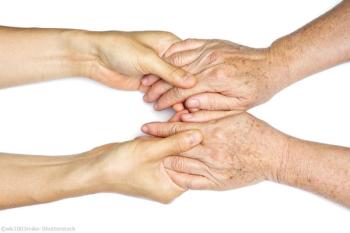
Obesity in Patients With Cancer
In this interview we discuss how obesity can affect cancer treatment, and how healthcare providers can better communicate with overweight patients on issues such as diet and exercise.
As part of Cancer Network’s coverage of the 42nd Annual Oncology Nursing Society (ONS) Congress, held May 4–7 in Denver, we spoke with Anne Katz, PhD, RN, FAAN. She is a nurse and sexuality counselor at the Manitoba Prostate Centre and CancerCare Manitoba in Winnipeg, Canada, editor of Oncology Nursing Forum, and the author of 13 books, including A Healthcare Provider’s Guide to Cancer and Obesity (2017,Oncology Nursing Society).
Cancer Network: Do we know why obesity and cancer are associated-why, biologically, obesity is a risk factor for some cancers and cancer recurrence?
Dr. Katz: Not really. It is a developing field. It probably has a lot to do with inflammatory cytokines that are happening at the cellular level-that’s the probable etiology. We know about associations more than anything else. We are really in the infancy of our knowledge about the importance of the microbiome and other cellular mechanisms associated with the development of obesity.
Cancer Network: For which cancer types is obesity a risk factor?
Dr. Katz: We know that obesity is a risk factor for development of breast cancer and endometrial cancer, and we know that there is an increased risk of developing gastrointestinal cancers, particularly esophageal and pancreatic cancer, for people who are obese-as well as kidney (renal) cancers. And then there are other cancers where if the individual is obese, there is a higher risk of recurrence, such as in breast cancer and prostate cancer, with increased mortality and progression to more advanced cancers. For those cancers, it’s pretty clear-and large numbers of people are affected or impacted.
Cancer Network: How does obesity affect cancer treatment?
Dr. Katz: There are intuitively logical examples; abdominal or pelvic surgery is more difficult on patients who are obese. One particular area is the issue of chemotherapy dosing. Traditionally, obese individuals have been underdosed because, generally, chemotherapy doses are calculated on total body mass and total surface area, and the concern has been that if we give these people higher doses, they’ll suffer more toxicity. But it turns out you’re actually underdosing them, so that chemotherapy might not be as effective. It is very complex because we know that chemotherapy is very toxic to almost everybody and we don’t want to cause harm. But we’re also potentially causing harm by underdosing some patients.
There are other issues as well. Individuals who are obese may not be able to do some of the things we ask patients to do for lifestyle and well-being, like exercising and moving more. We know that people are fatigued during radiotherapy, and that exercise is effective at reducing fatigue. But obese individuals have a harder time getting moving.
The role of physical activity in general well-being and managing side effects of cancer treatment is something I’d like to highlight. People are often looking for a magic pill. Exercise is cheap and we can all do it. There is significant evidence of benefit for patients suffering from fatigue.
When we treat side effects with medication, we often wind up treating the symptoms and causing drug interactions and financial toxicity, which can be highly significant, when something as simple as getting up and going for a walk regularly can help. I advise patients to plan to walk for 10 minutes. Chances are, if you walk for 10 minutes you can walk for 15. Take a partner, look around. You don’t need special clothes. Just take a walk outside. Walk at the mall if the weather is bad. It’s a simple, low-cost intervention that has enormous potential benefits.
Cancer Network: What can healthcare providers do to better communicate about obesity with patients, to discuss diet, exercise, and weight loss?
Dr. Katz: One of the biggest issues is that overweight and obesity are very difficult for healthcare providers to talk about. There is stigma attached to it and we don’t want to make patients feel bad or to offend, so it’s often not discussed. I have talked with nurses about the importance of sensitively discussing weight with overweight and obese patients, and nurses have told me outright, “you can’t make me talk to my patients about that.” There is resistance to talking about this. Many of us are obese or overweight ourselves, so there’s a natural reluctance to talk to our patients about a topic we don’t seem to have control over. My book focuses mainly on helping oncology care providers find the tools to address this issue with their patients.
It is also important for patients’ family members. Spouses want to know what they can do and one of their first questions is what foods the patient should be eating. I use gentle humor: “He’s on the overweight side, haven’t you noticed?” Then we talk about the need for a healthy diet. We nurses are not always experts on nutrition, so referrals to nutritionists or dieticians can be important. Encouraging patients to eat a healthier diet and showing them the USDA “My Plate” diagram to suggest proportions of food and the importance of eating a lot of dark, colorful vegetables can help-a plant-based diet with some lean, healthy protein, and minimal dairy and fat is best. Weight Watchers has an online component now. There is also Overeaters Anonymous.
People who keep an accurate food diary tend to do better. It is very helpful to become more cognizant of what we eat, because so much of our eating is unconscious; we grab potato chips or a candy bar as we walk out the door. We eat unconsciously. Mindful eating as a strategy can really help people. When you sit down with a knife and fork and chew your food-that can actually decrease the amount of food we eat.
Cancer Network: What are the biggest barriers to effective communication with patients about obesity?
Dr. Katz: Fear of being judged by our patients is a big one. There is evidence that when an overweight physician suggests that an overweight patient should lose weight, the patient will discount that. But there is also evidence that an overweight nurse might actually be a more acceptable messenger about weight. If you yourself are overweight or obese, you can use that as a bridge with your patient: “I know this is difficult; I have struggled with weight and I recognize how difficult it can be, but that doesn’t mean you should stop trying.” That’s building a bridge, creating empathy-which is important.
We are often pressed for time and we tend to think that this will be a long conversation. But we can bring people back and there are online support groups and programs that can be helpful. We can refer patients to dieticians.
Newsletter
Stay up to date on recent advances in the multidisciplinary approach to cancer.






































